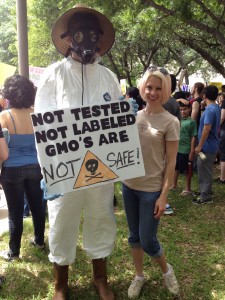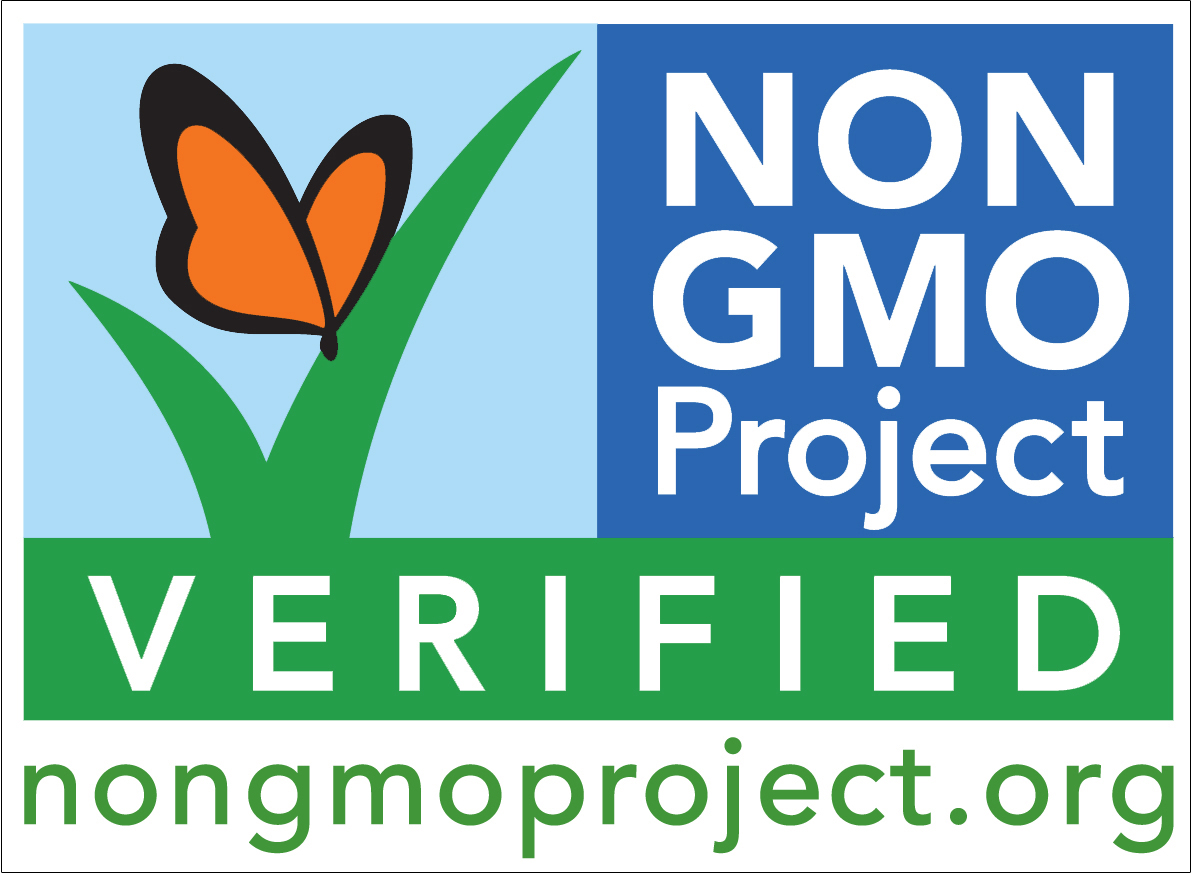A few weekends ago, I gathered in downtown Dallas with about 1,000 other local citizens to March Against Monsanto. It was my first protest march. We were marching to bring awareness to the inescapable presence of Genetically Modified Organisms (GMOs) in our food and personal products. Monsanto is the leading company in the production and engineering of genetically modified organisms.

(that’s not me in the suit)
Why would so many men and women, mothers and fathers, grandparents and children, come together to march like this in Dallas? We want to draw attention to the question: what is the big deal about GMOs?
Genetic engineering is the process of taking an organism (a plant or an animal) and altering it’s DNA structure slightly. The changes are usually made so that the organism is more resistant to things that would endanger its growth, or in the case of food, to make the food stronger or prettier. Some organisms are engineered to secrete toxins that repel bugs (yep, you are eating the toxins that kill bugs when you eat the food that secretes the poison), while others are engineered to react in a specific way to additional chemicals sprayed onto the full grown plants, making the residue more toxic than the spray would be on it’s own. Still other foods are modified to produce bigger, juicier, or more drought-resistant crops. Animals are often given growth hormones.
Why should you be concerned about genetically modified food, as a mom?
There are a lot of reasons, here are just a few that are important to me.
- GMO’s have only been around for 15 years, not long enough to be proven safe. Cigarette smoking was thought to be safe for more than 50 years until the connection to cancer was definitively made in 1952. The changes these plants and animals undergo are not yet fully known.
- We are eating plants that have been genetically engineered to secrete poison. Sure, the poison might not kill us in small quantities but right now, 70%-80% of foods we eat every day contain GMOs. That’s a large accumulation of poison in each one of our bodies at 3 meals a day, 365 days a year.
- GMO’s are not only toxic to pests, but to all wildlife. All kinds of animals come in contact with genetically altered crops. The same toxins enter their smaller bodies and have a larger affect than the toxins in a human body.
- Our children’s bodies are smaller and absorb more toxins. While companies like Monsanto claim that the toxins in GMO materials and food are safe for human consumption, remember that our children’s bodies are smaller than ours. The same amount of built-in poison in the foods we eat, when given to them, have a higher impact.
More reasons and more information can be found at The Non-GMO Project, Moms For Safe Food, and The Huffington Post.
You might dismiss GMO concerns by saying “I only eat organic food” or “I never eat GMO food”. Even organic food can contain food grown from genetically altered seeds. The “organic” designation from the USDA refers to how the food is grown, not where the seed came from. A farmer can plant genetically modified corn seed, raise it organically, and still retain the USDA organic certification label.
What can we do?
Support legislation to require GMO labeling of food products. Regardless of whether you approve or disapprove of the use of genetic modification, you are currently not being given the choice to decide for yourself whether you or your family will be exposed to GMOs. There is no national requirement for food to be labeled if it contains GMOs. Several states have attempted to pass GMO-labeling laws. California’s Proposition 37 failed, but just last week the GMO labeling law in Connecticut passed. If a bill like this comes to Texas, are you ready to contact your representatives?
Be a conscious consumer. If you feel strongly that GMOs are a danger to your family, you can take a few easy steps to make purchasing decisions that reflect your desire to lower your GMO exposure. At The Non-GMO Project site, you can download an app for your smart phone, search the online list of verified non-GMO products, or when you are shopping you can look for the Non-GMO Project seal, which looks like this:
More good news: Whole Foods Markets in the United States have decided to voluntarily label all GMO products sold in their stores by 2018. It’s a huge undertaking, but one that I personally appreciate, even though it is still a few years away.
How do you feel about GMOs? Were you already aware of most of this information, or is it new? If so, feel free to ask questions below and I will do my best to research the answers for you.
**Please note that Jenny’s opinions aren’t reflective of all of our contributors or of Dallas Moms Blog. We support and encourage moms developing their own opinions about political and environmental topics.














